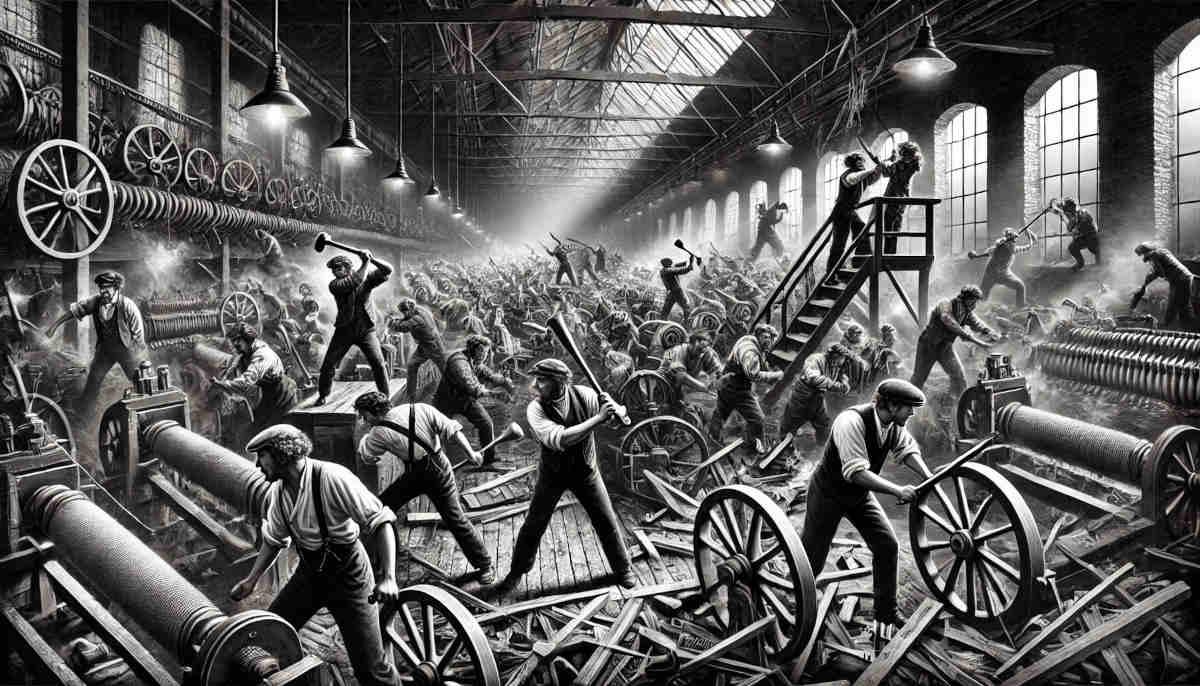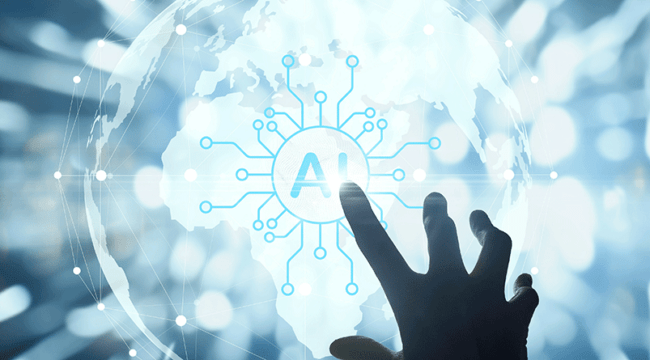Consequences of the AI Revolution
AI is set to usher in a new industrial revolution.
To prepare, I’ve been brushing up on past industrial revolutions, starting with the first one, which took place from around 1750 to 1830.

A few of the more disruptive inventions from this period include:
- Steam engines
- Mechanized factories
- Power looms (textiles)
- Stocking frames (knitting)
- Coke smelting (iron tech)
The adoption of these tools completely changed the world economy. Most of these breakthroughs came from Britain, and it was the primary early beneficiary.
For example, due to coke smelting and blast furnace tech, by 1850 Britain was producing 50% of the world’s iron.
Albion carefully guarded the secrets of this revolutionary technology. Exporting this tech was forbidden, workers were sworn to secrecy, and factories had high security to keep spies out (similar to our situation today with GPUs and microchips).
Needless to say, Britain’s economy was profoundly changed. Productivity soared to unbelievable heights. A new class of industrial barrons was born.
However, many artisans and craftspeople were put out of work. Making textiles and other goods by hand simply couldn’t compete with the efficiency of a factory powered by steam engines.
Those who switched to factory work saw a significant drop in pay and now were forced to work in poor conditions.
It was a recipe for civil unrest.
Breaking Frames
Today the term Luddite is used derogatorily to describe someone who dislikes technology. However, the Luddite movement was a powerful one inspired by a mythical story about a textile worker named Ned Ludd.
Ludd was a craftsman who rebelliously smashed a knitting frame after being put out of work. His story began to spread around 1789, but it took a while for the Luddite movement to get going.
By 1811 the renegade movement was in full swing. Luddites broke into factories and smashed high-tech machines, particularly power looms and stocking frames. They protested and rioted.
The British government responded forcefully. The Frame-Breaking Act of 1812 made smashing machinery a crime punishable by death.
Military troops were deployed to guard factories. Eventually, Luddites were rounded up and arrested. Some were executed, some were jailed, and others were sent to the penal colony of Australia.
The Luddite threat faded, but Britain did eventually lose its monopoly on these technologies. Nevertheless, this period ensured that Albion would continue to be a dominant global player for many decades to come.
From Power Looms to GPUs
If AI turns out to be as disruptive as I believe it will, we may well see a neo-Luddite movement develop over time. It would be fueled by people fed up with AI taking their jobs and opportunities.
We could see worker strikes, protests, and even civil unrest if the situation gets bad enough. It might even get to the point where people attempt to sabotage GPU data centers. “GPU-breaking” is the modern equivalent to the Luddites’ “frame-breaking”.
Many of us suspect that universal basic income (UBI) will be the government’s solution to the disruption. If enough people are put out of work, they’ll simply hand everyone a small paycheck with freshly printed money.
But neither of these paths is satisfactory. Fighting against technological advancement is a losing battle. And printing money to generate basic income for the entire country is a recipe for sustained inflation and bad incentives.
If we hamper and regulate AI advancement, we’ll quickly be surpassed by China and other global players. That’s not really an option.
The only answer is to rapidly adopt these new technologies, as distasteful as that may be in the short run.
Here’s what I wrote in The Thinking AI Revolution during the Holidays:
Companies that wisely employ these new AI technologies will see a productivity boost unlike anything we’ve ever seen in centuries.
Likewise, individuals who learn to harness these tools will become super-productive.
Companies and people who refuse to adopt this new tech, however, may find themselves falling behind.
Ultimately AI will lead to far higher productivity, and eventually, growth. But the adoption period will be challenging.
That’s where we are today. At the very beginning of a disruptive, exciting, and scary time. We must be ready to adapt to this new world.
Stay tuned as this story develops.



Comments: